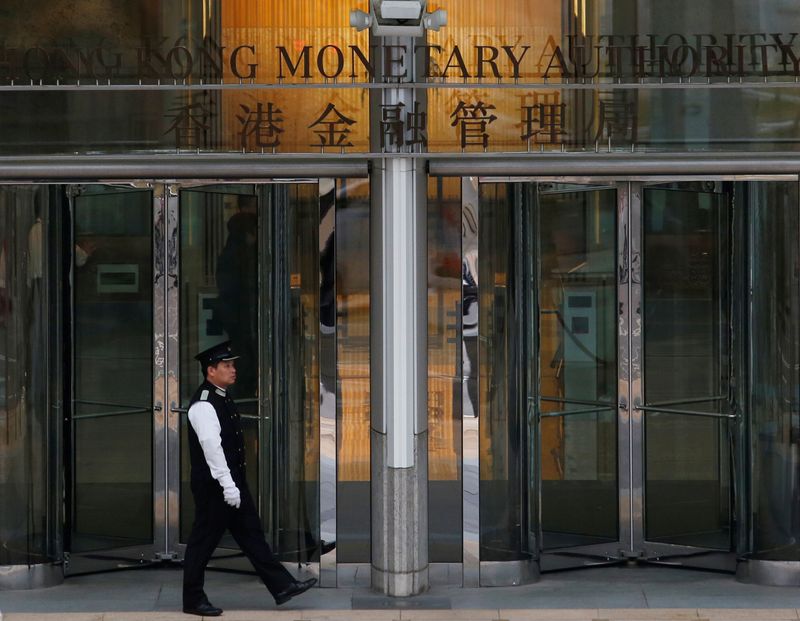Hong Kong central bank raises rates after Fed hike, HSBC follows
2022.12.15 02:04
[ad_1]

© Reuters. FILE PHOTO: An attendant walks outside the entrance to Hong Kong Monetary Authority in Hong Kong, China November 10, 2015. Picture taken November 10, 2015. REUTERS/Bobby Yip
HONG KONG (Reuters) -The Hong Kong Monetary Authority (HKMA) said on Thursday it would raise its base rate charged through the overnight discount window by 50 basis points to 4.75%, hours after the U.S. Federal Reserve delivered a rate hike of the same margin.
The U.S. central bank raised interest rates by half a percentage point and projected at least an additional 75 basis points of increases in borrowing costs by the end of 2023, as well as a rise in unemployment and a near-stalling of economic growth.
“Rate hike in the U.S. will not affect the financial and monetary stability of Hong Kong,” HKMA Chief Executive Eddie Yue told reporters. “Our monetary and financial markets continue to operate in a smooth and orderly manner. The Linked Exchange rate system (LERS) also continues to work well.”
Hong Kong’s monetary policy moves in lock-step with U.S. policy as the city’s currency is pegged to the greenback in a tight range of 7.75-7.85 per dollar.
HSBC Holdings (NYSE:) tracked the rate hike saying it was raising its best lending rate in Hong Kong by 25 basis points to 5.625% effective Dec. 16.
The market generally expects the U.S. dollar interest rate to continue to rise and together with increase Hong Kong dollar funding demand driven by seasonal requirements and the local stock market, the Hong Kong dollar interbank rates might remain at elevated levels for some time, HKMA said.
“The public should be prepared for the likelihood that banks’ deposit and lending rates may go up further, and should carefully assess and manage the relevant risks when making property purchases, taking out mortgages or making other borrowing decisions,” Yue added.
Hong Kong’s private home prices have fallen 10.5% in the first 10 months of this year with October prices down 2.4% in the biggest drop since November 2018, hit by rising interest rates and a pessimistic economic outlook.
[ad_2]
Source link








